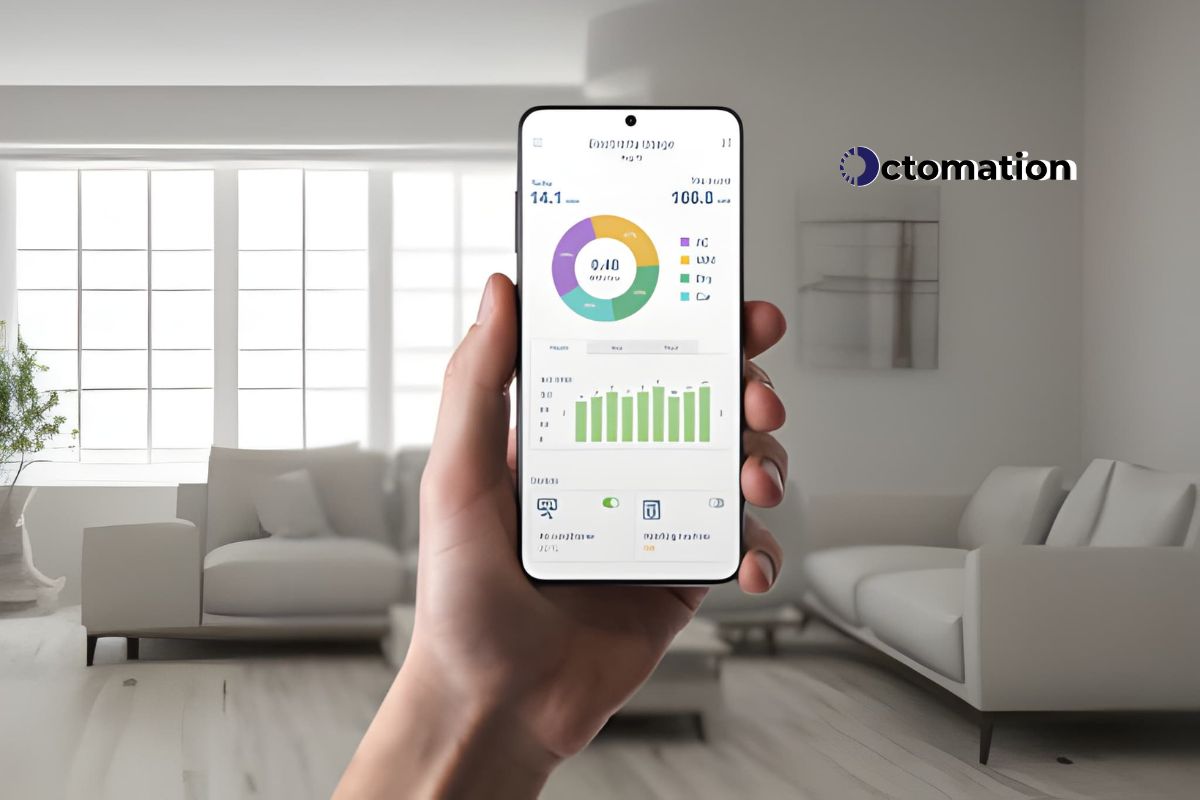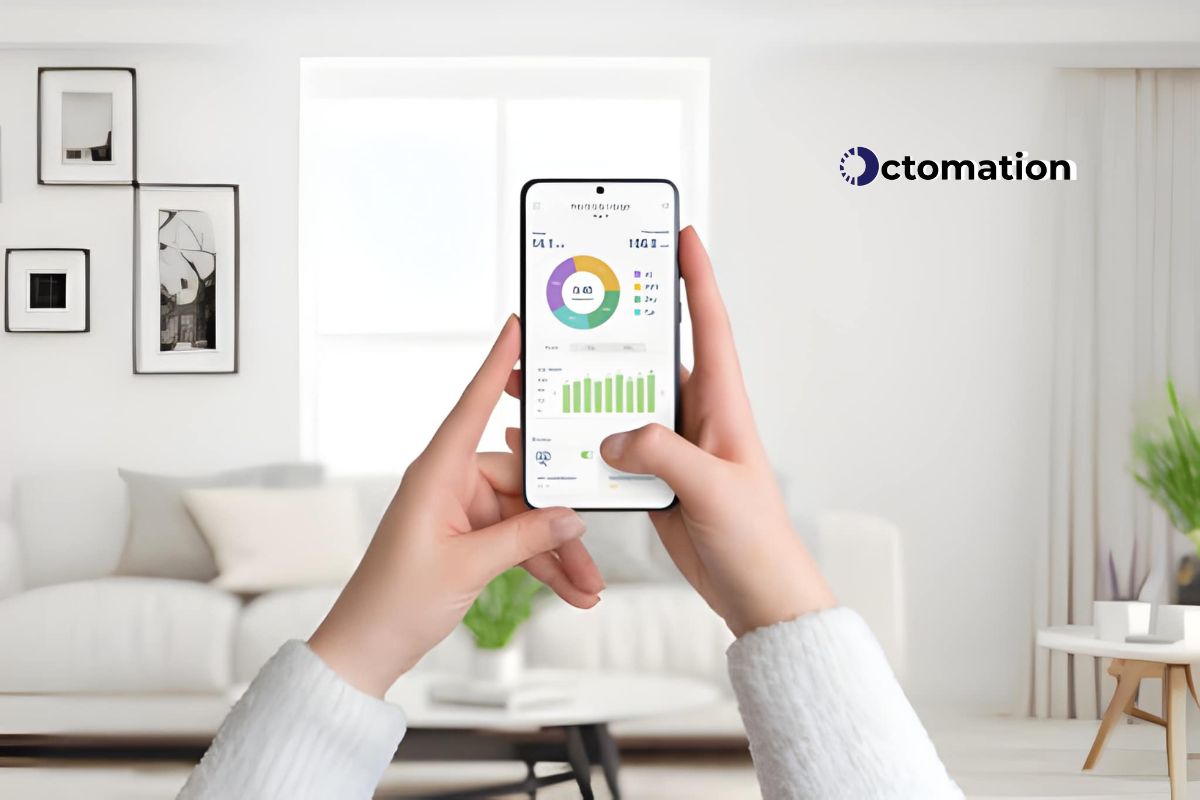Is the Smart Home app safe?

Convenience meets complexity in the quickly developing field of smart home automation, along with worries about digital security. The Smart home app has become a primary control point for controlling everything from Smart door locks and surveillance to lights and thermostats as the use of smart devices soars. However, a crucial query emerges as customers commit more aspects of their homes to this digital ecosystem: Is the Smart home app secure?
Knowing the Smart home App: Its Functions and the Significance of Security
Using a smartphone or tablet, users may remotely control a large network of connected devices thanks to the Smart home app, which acts as a single platform. The app offers previously unheard-of levels of efficiency and simplicity with features like voice assistant integration, geo-fencing, automated scheduling, and real-time video streaming.
But that convenience also exposes you to online dangers. If the Smart home app is not adequately secured, it can be vulnerable to malware, hackers, and illegal access, just like any other internet-connected program that contains personal information.
Protocols for Data Transmission and Encryption
The robustness of an app’s data encryption techniques is one of the most important measures of its security. For data transfer between devices and the app server, the Smart home app employs end-to-end encryption. This implies that data is unreadable by outsiders even if it is intercepted in the middle of transmission.
The majority of Smart home software versions use Transport Layer Security (TLS) to protect user credentials, device commands, and activity logs from being intercepted or altered. Additionally, stored data frequently uses AES-256 encryption, which is regarded as military-grade.
Methods of Authentication
Because the app uses multi-factor authentication (MFA), users must use two or more credentials to confirm their identity. The hazards associated with passwords that are stolen or guessed are greatly reduced by this feature.
Only authorized users can use the app thanks to the integration of biometric login options like fingerprint or facial recognition. Users can set up time-based one-time passwords (TOTP) using reliable tools like Google Authenticator for even more security.

Control of Access and User Permissions
The way the software manages user permissions adds another line of protection. Granular access control is made possible by the Smart home app, allowing the primary account holder to grant family members or outside users—such as security personnel or domestic help—specific responsibilities and access levels.
This limits the accessibility of sensitive data because one person may have full administrative access while another may just be able to control lighting automation or get doorbell warnings.
Updates for Firmware and Software
Security is a continuous process. It’s a constant dedication. Automatic software updates, which frequently contain critical security patches to fix recently found vulnerabilities, are regularly released by the Smart home app.
To encourage users to keep their linked devices safe and up to date with the most secure firmware, the app also notifies users when upgrades are available.
Server infrastructure and cloud security
The back-end infrastructure of the app is essential to general security. The cloud servers used by the Smarthome app are hosted on reliable and compliant platforms like Google Cloud and Amazon Web Services (AWS), both of which follow stringent SOC 2 and ISO/IEC 27001 guidelines.
Cloud data is continuously monitored to identify and stop intrusions, protected by firewalls, and redundantly backed up. The data centers are also physically secure, featuring surveillance, biometric entry, and maintenance staff access logs.
Data handling and privacy policy
Keeping hackers out is simply one aspect of security; another is how the app manages your data. A clear privacy policy detailing the collection, usage, and sharing of user data is included in the home automation company in Delhi app.
The app gives users the option to refuse non-essential data collecting and pledges never to sell personal information to outside parties. Additionally, if a user decides to quit using the app, they can request a data deletion, which would allow their information to be completely removed from the system.
Typical Vulnerabilities and How to Fix Them
Some consumers worry about device spoofing, unprotected Wi-Fi access, and IP camera hacking. The Smart home app uses the following strategies to address these problems:
- Encrypted camera streams: Only authenticated sessions can view live video feeds that are encrypted.
- Network security prompts: The software suggests more robust Wi-Fi encryption (WPA3) and identifies vulnerable home networks.
- MAC address filtering: The app or connected smart hubs can only be accessed by authorized devices.
- Session timeouts: To prevent unauthorized access, inactivity automatically locks the user out.
User Accountability: Optimal Techniques to Optimize App Security
Even with strong in-app security, end users still have a role to play. The following are best practices that all users of home automation apps should adhere to:
Even with strong in-app security, end users still have a role to play. The following are best practices that all users of Smart home apps should adhere to:
For the app and related email accounts, create strong, one-of-a-kind passwords.
- As soon as the installation is complete, enable MFA.
- Update the firmware and any apps regularly.
- Avoid using public Wi-Fi when using the application.
- Keep an eye on account activity logs to spot any illegal login attempts.
Industry Recognition and Security Certifications
The parent firm of the Smart home app frequently complies with international requirements such as the CCPA and GDPR. Third-party audits also confirm how strong their security posture is.
Seek out certifications like:
- Information Security Management (ISO/IEC 27001.)
- Cloud Security Alliance, or CSA STAR
- Software Cybersecurity for Network-Connected Products (UL 2900)
These accolades are a testament to the app’s dedication to safeguarding your virtual home.